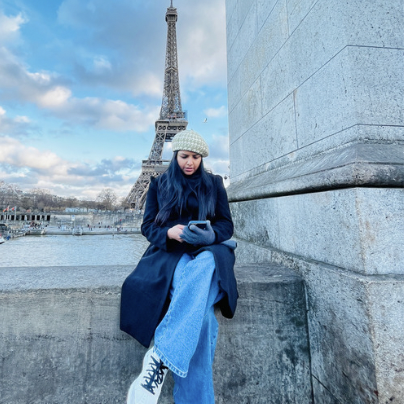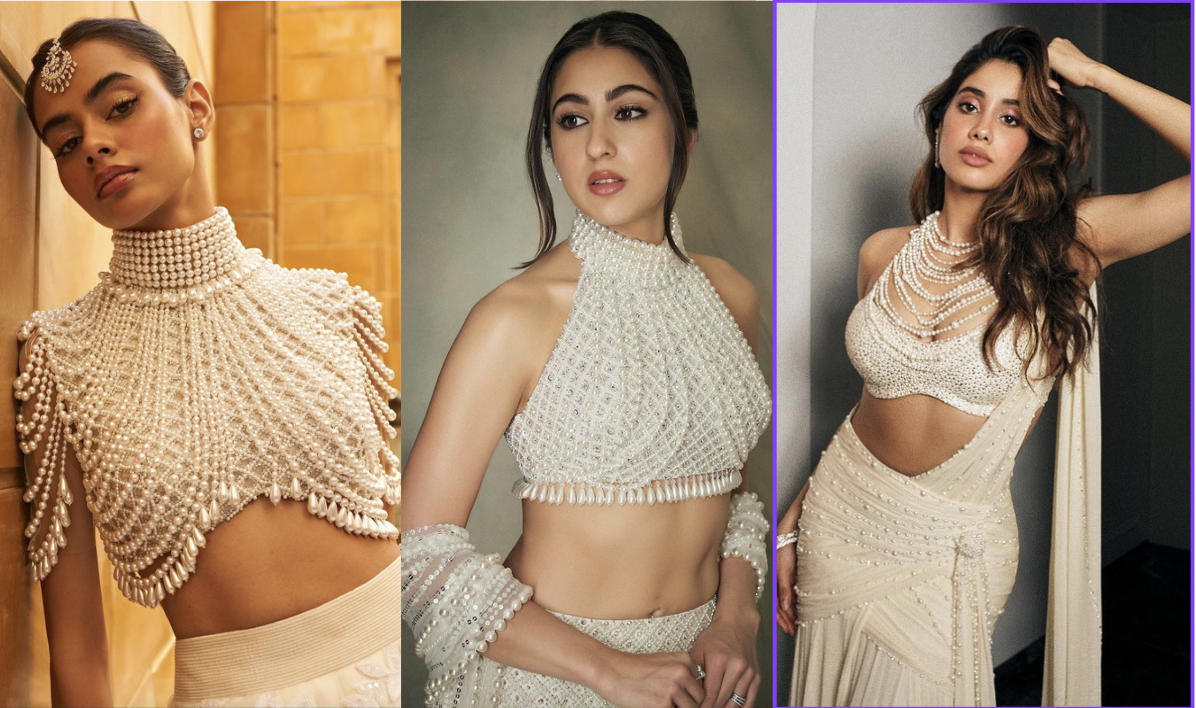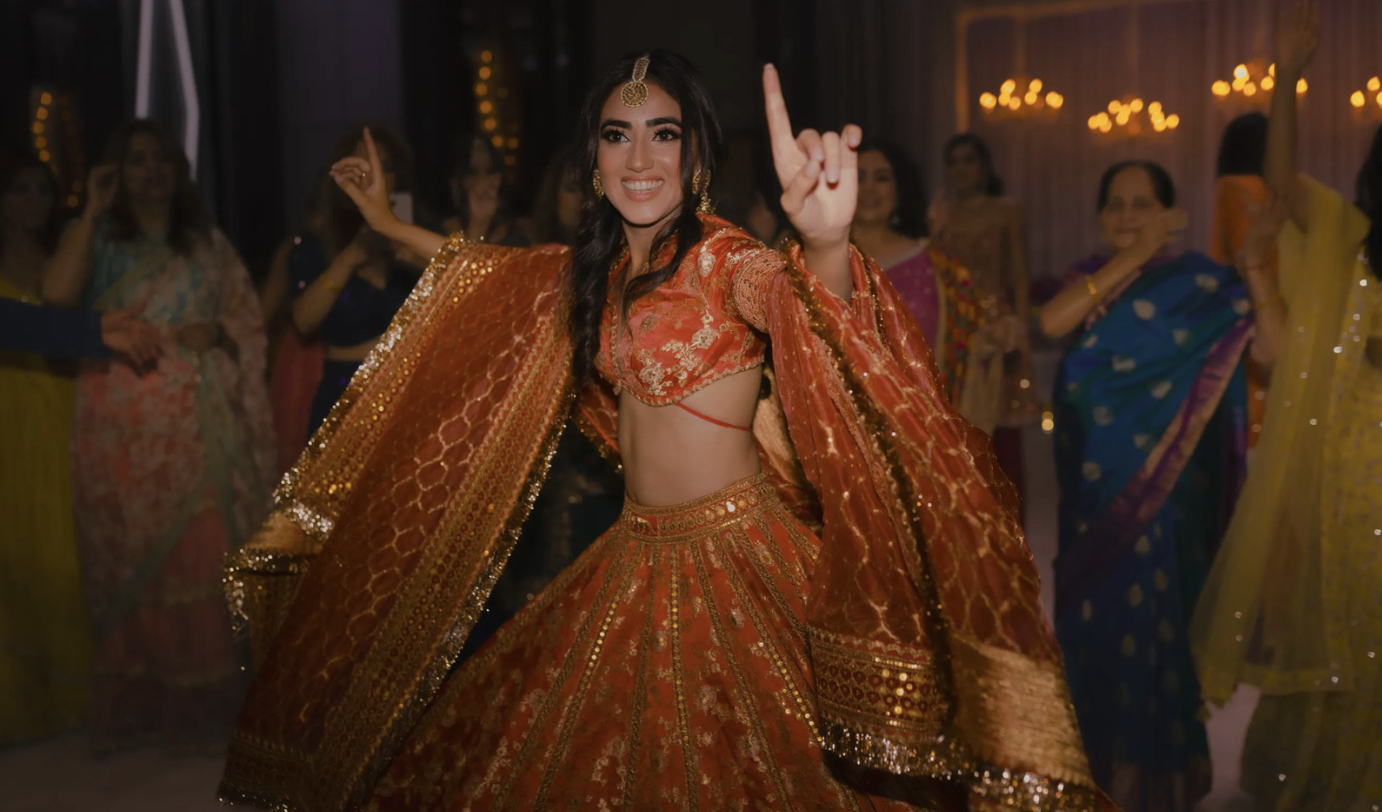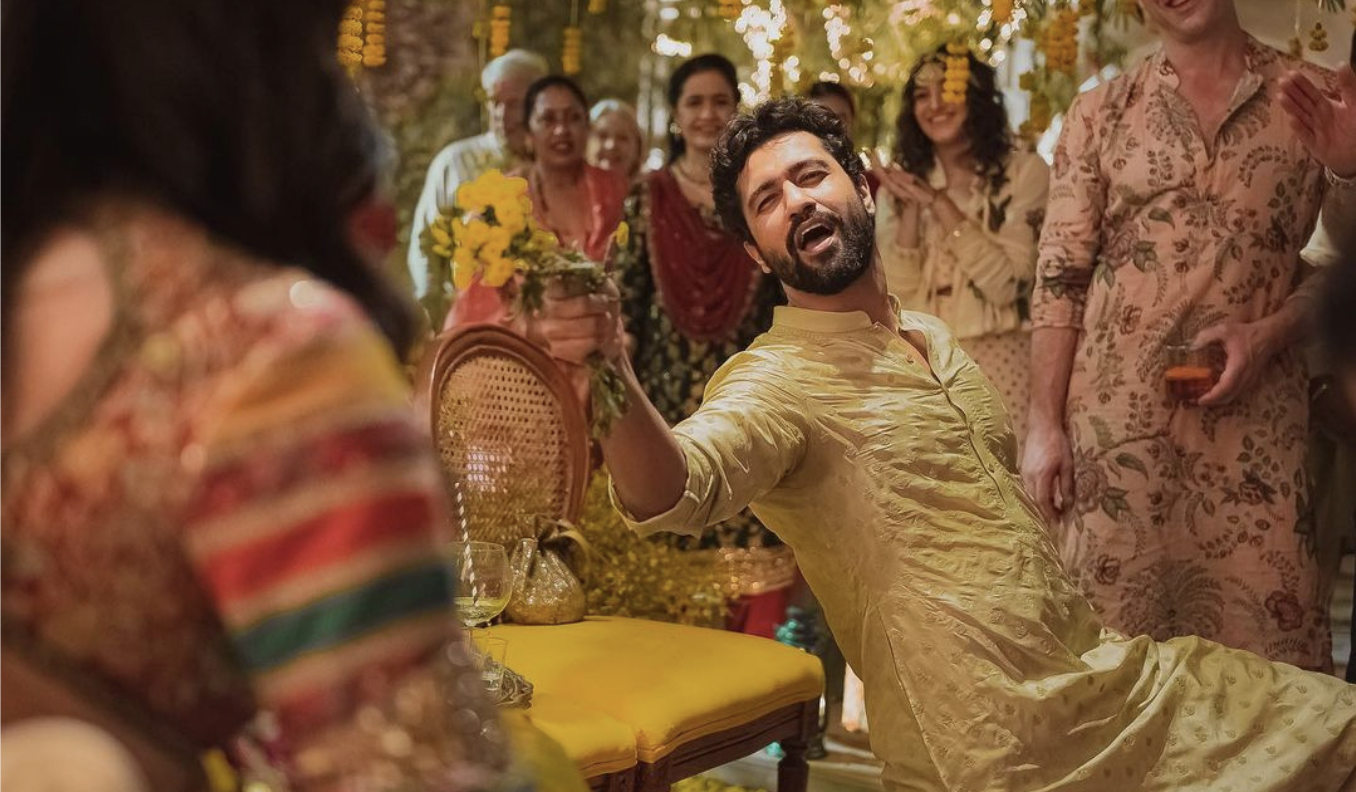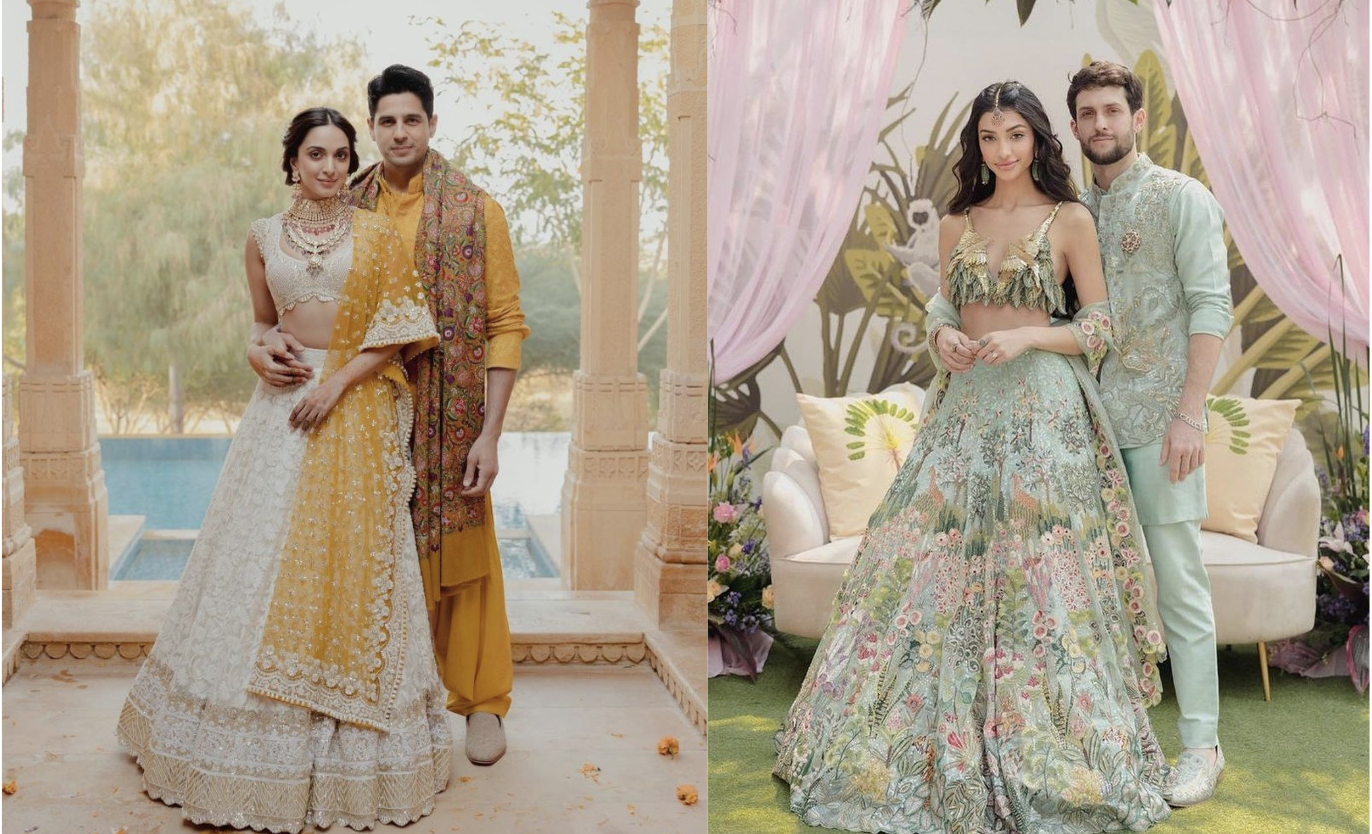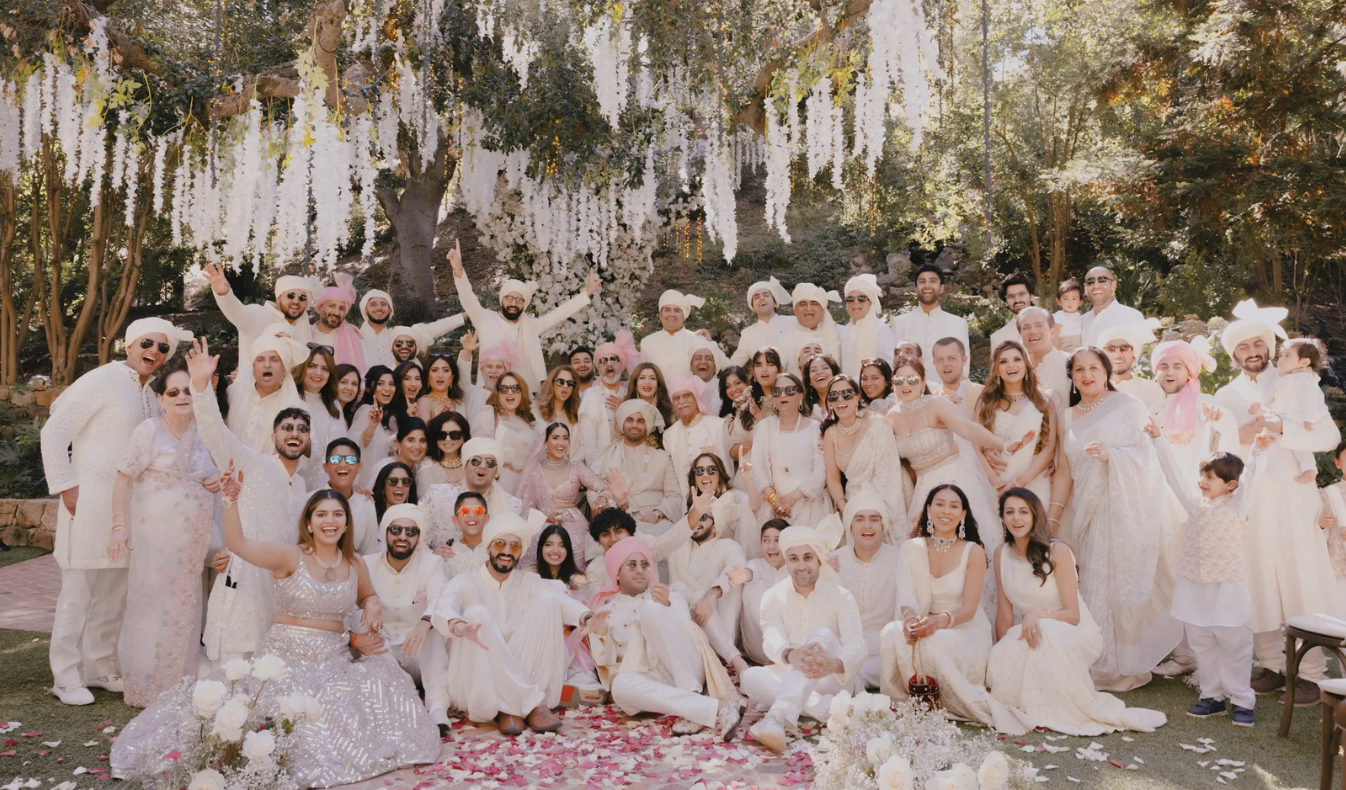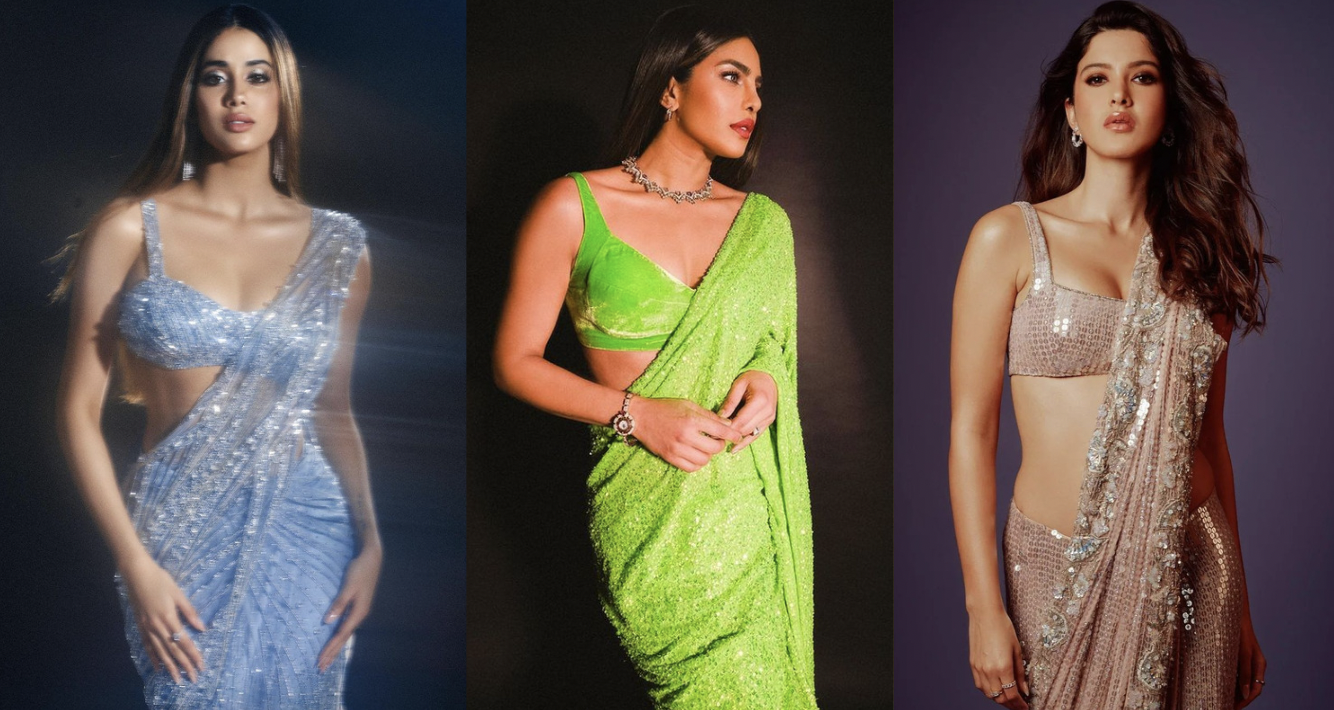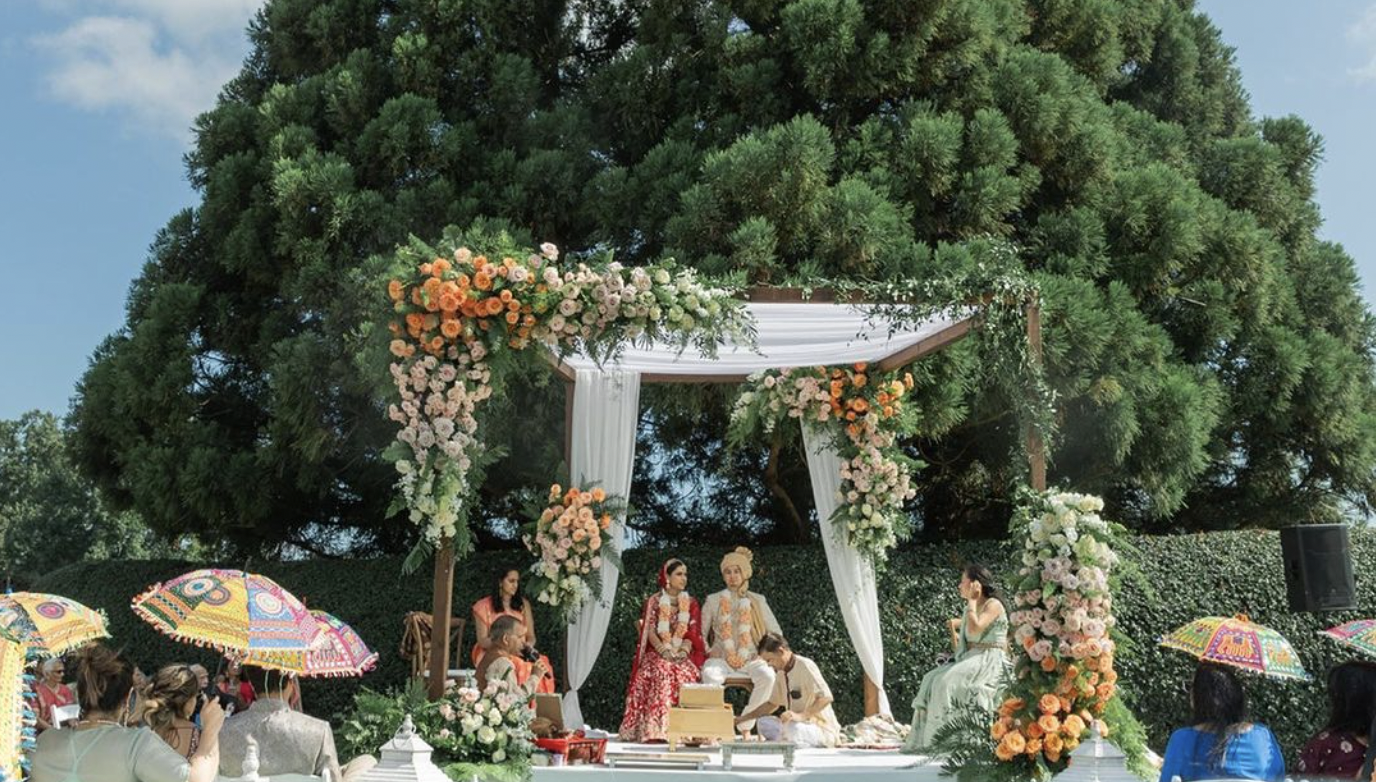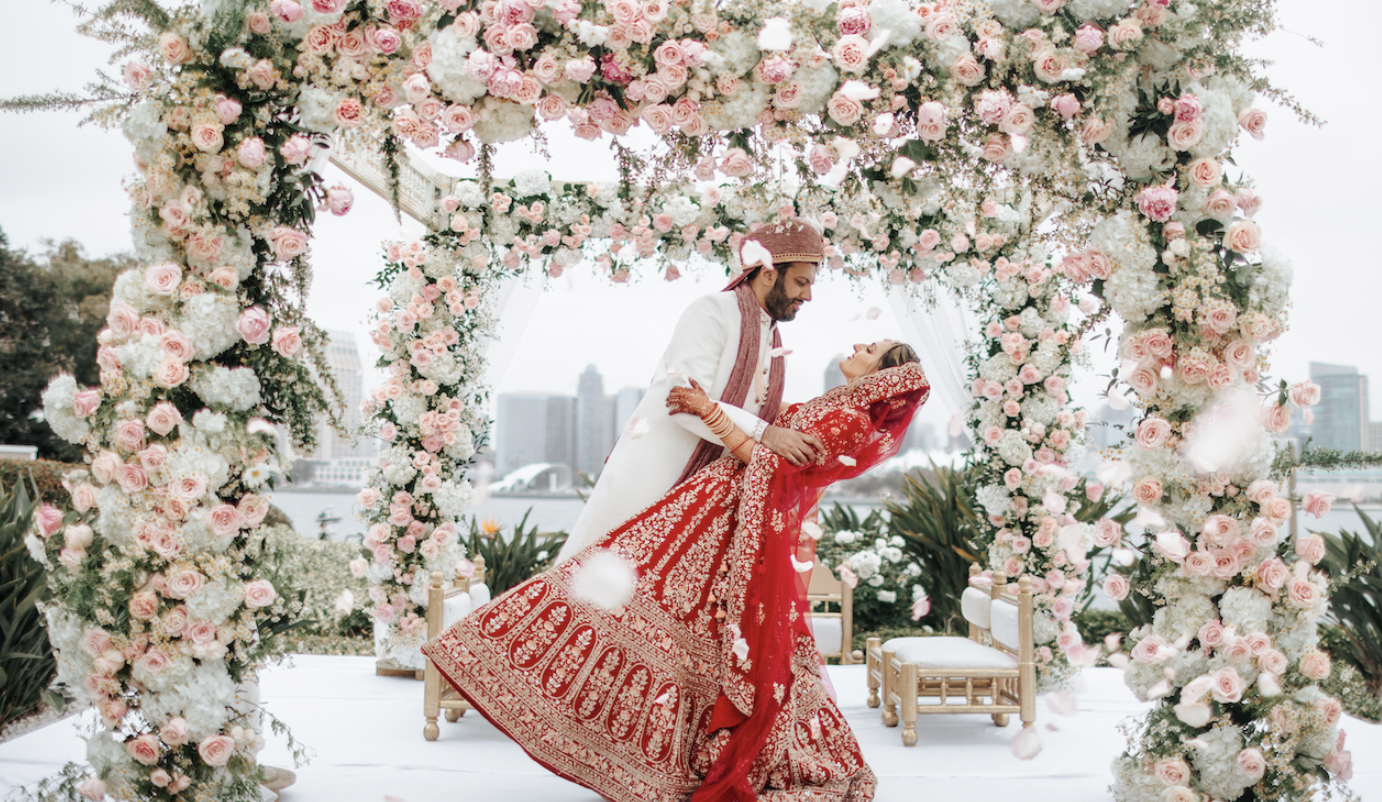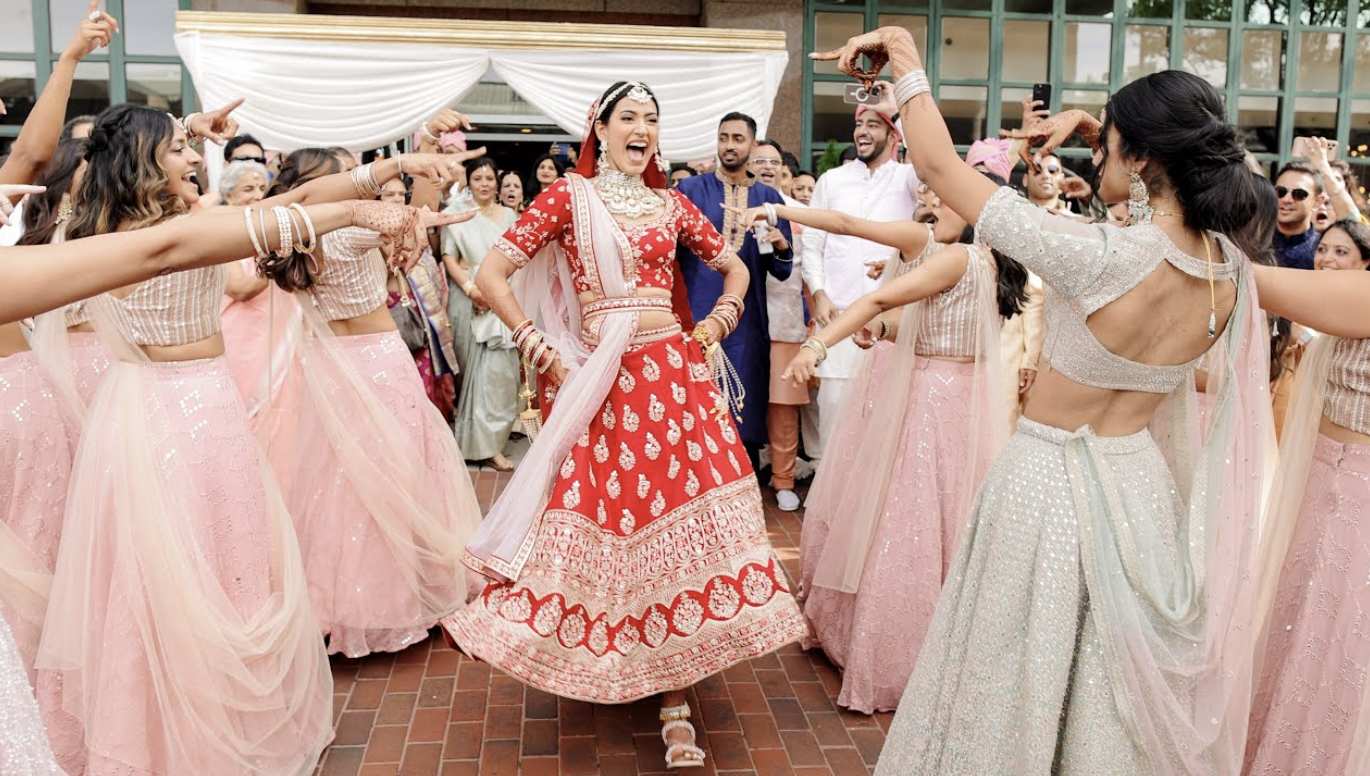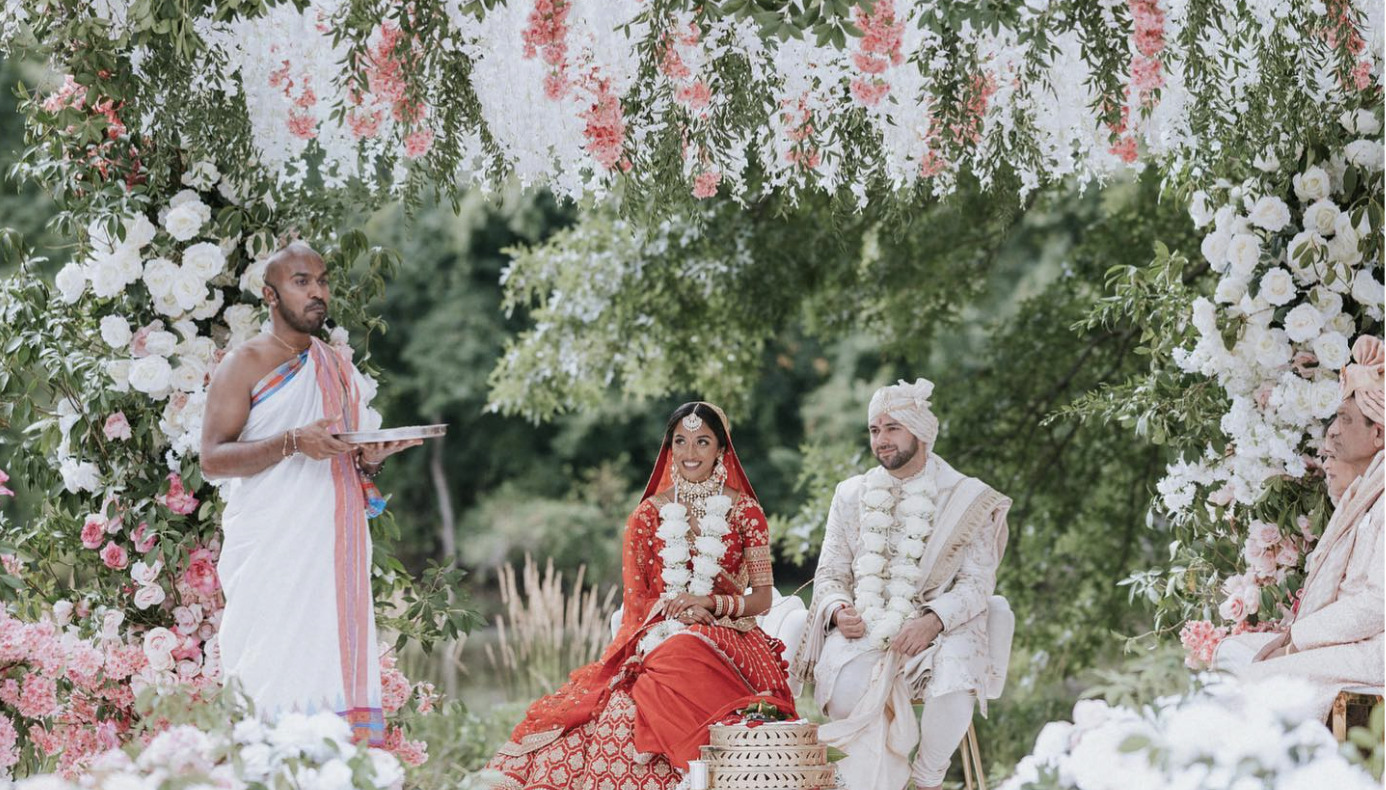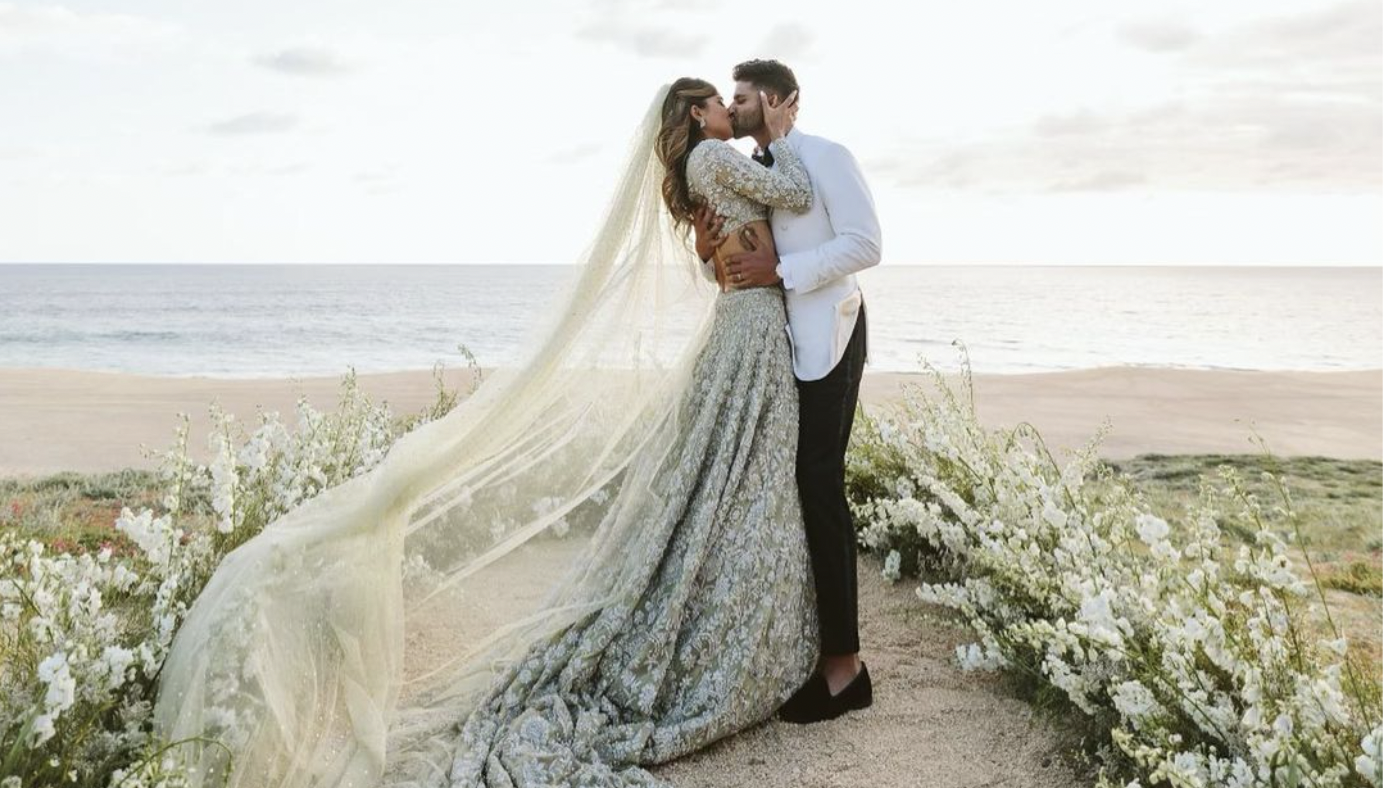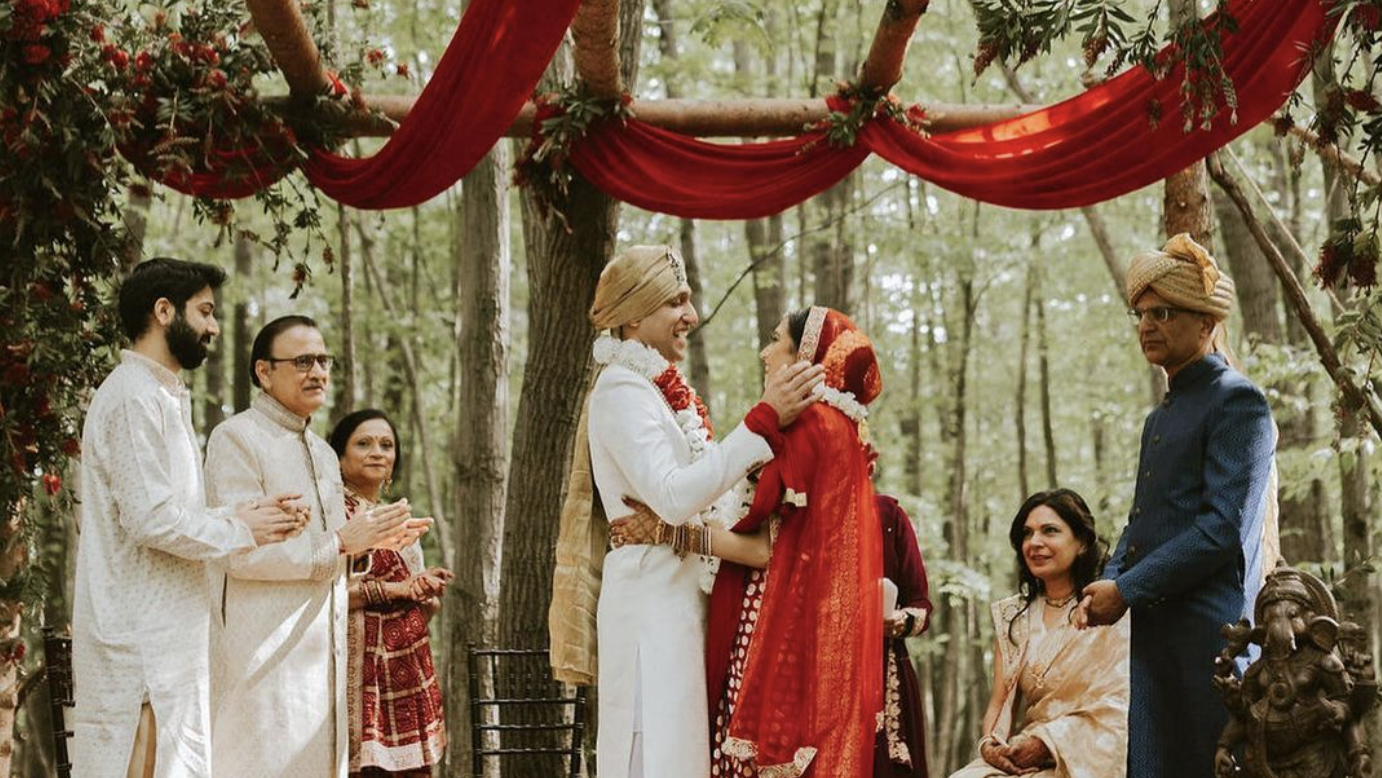Muslim Wedding Traditions: Exploring The Rich Customs & Practices
Wedding Planning Neha Garg AhujaA Muslim wedding, also known as a Nikah, is a beautiful and sacred ceremony that is steeped in tradition and culture. It is a time when two individuals come together to form a lifelong partnership based on love, respect, and mutual understanding. In this blog post, we will explore the various aspects of a Muslim wedding, including the pre-wedding rituals, the wedding ceremony itself, and the post-wedding customs.
Muslim Wedding Pre-Wedding Rituals
In Muslim culture, the pre-wedding rituals are just as important as the wedding ceremony itself. These rituals are meant to build excitement and anticipation leading up to the big day. Some of the most common pre-wedding rituals include:
Istikhara
This is a prayer that is performed by the bride and groom to seek guidance from Allah before they decide to get married. It is usually performed by a religious leader or family member.
Mangni
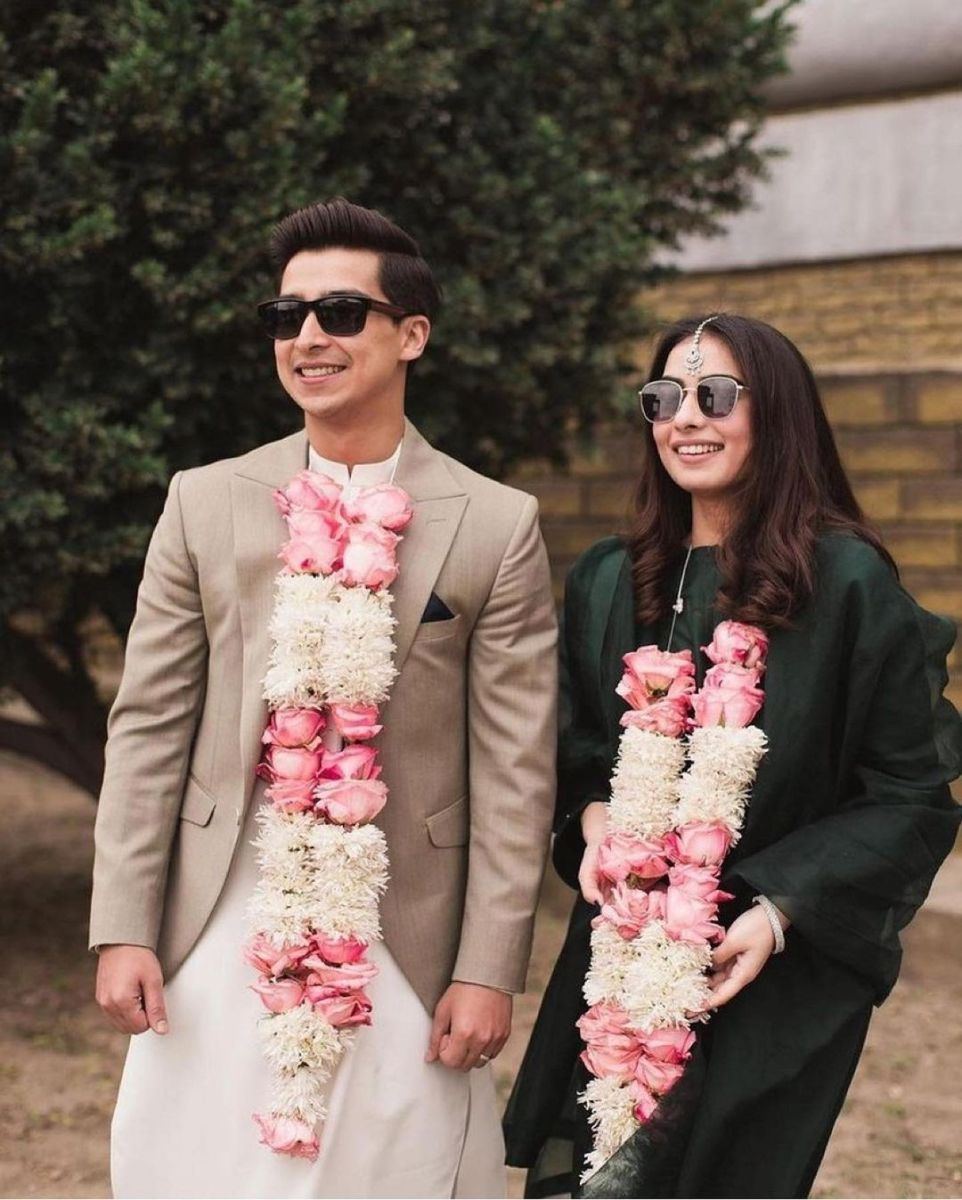
Source: Asad Iqbaaal
This is the engagement ceremony, where the families of the bride and groom come together to exchange gifts and finalize the wedding date.
Mehndi Night
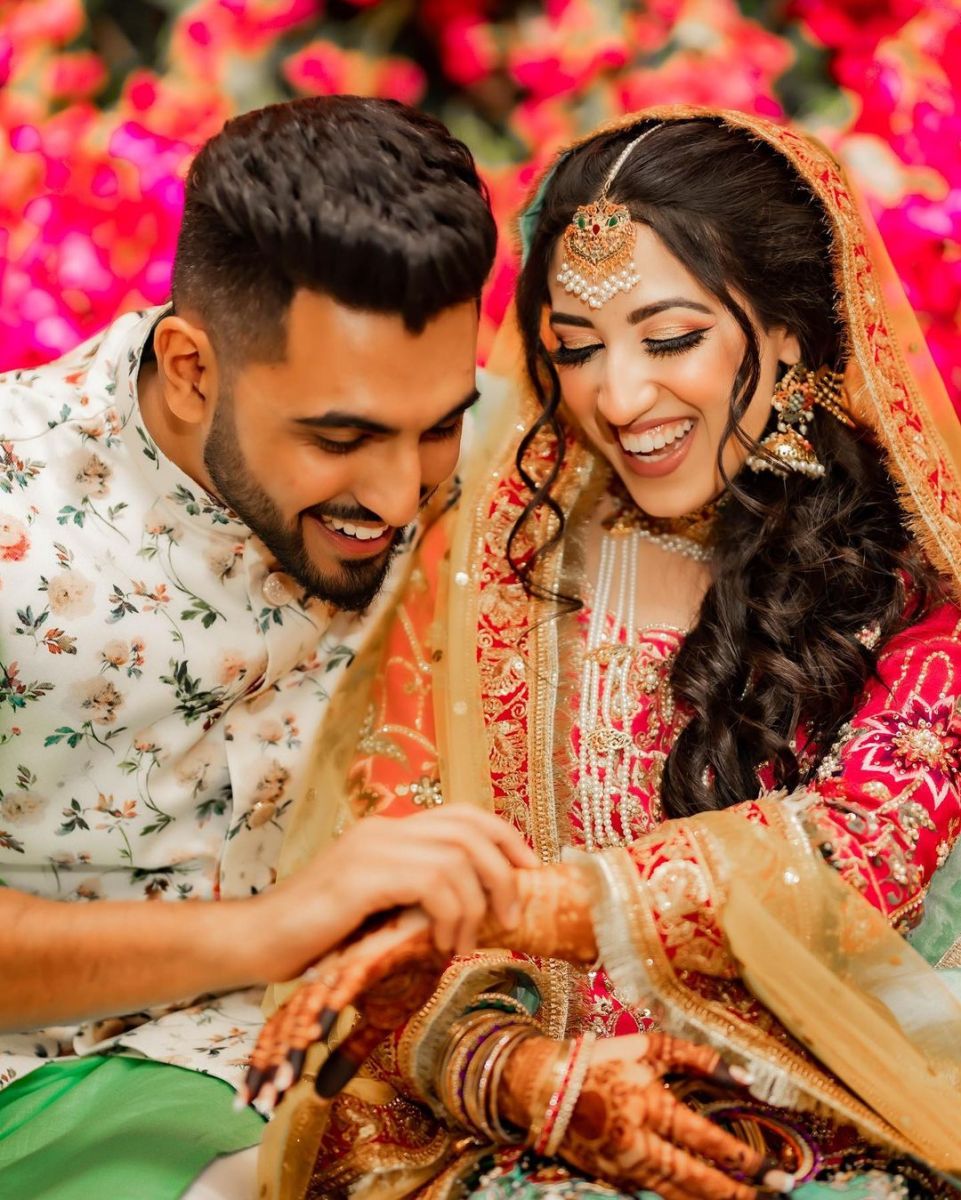
Source: Denz Photography
This is a pre-wedding ritual where the bride's hands and feet are decorated with henna. It is a fun and festive event where the bride's family and friends come together to celebrate.
Sanchak
This is a ritual where the groom's family visits the bride's home to present gifts and sweets. It is a symbolic gesture to show that the groom's family is accepting the bride into their family.
Muslim Wedding Ceremony
The Muslim wedding ceremony is a beautiful and sacred event that is steeped in tradition. It usually takes place in a mosque or at the bride's home. Here are some of the key elements of a Muslim wedding ceremony:
The Nikah
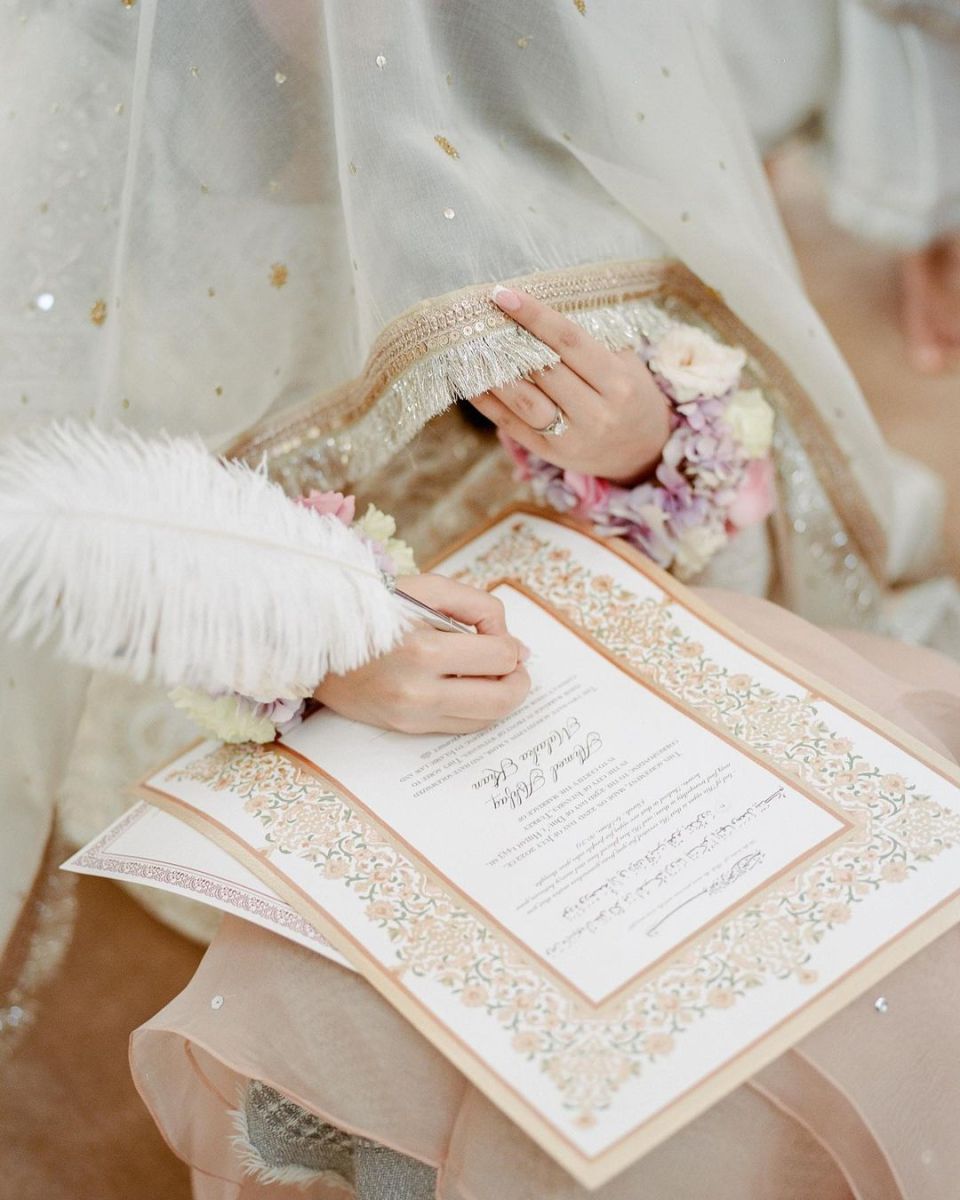
Source: Marigold Design House
This is the official wedding contract that is signed by the bride, groom, and two witnesses. It outlines the terms of the marriage, including the rights and responsibilities of both parties.
The Khutbah
This is a sermon that is given by the Imam or religious leader. It is meant to remind the couple of their obligations to one another and to Allah.
The Mehr
This is a mandatory payment that the groom must make to the bride. It is a symbol of his commitment to take care of her financially.
The Vows
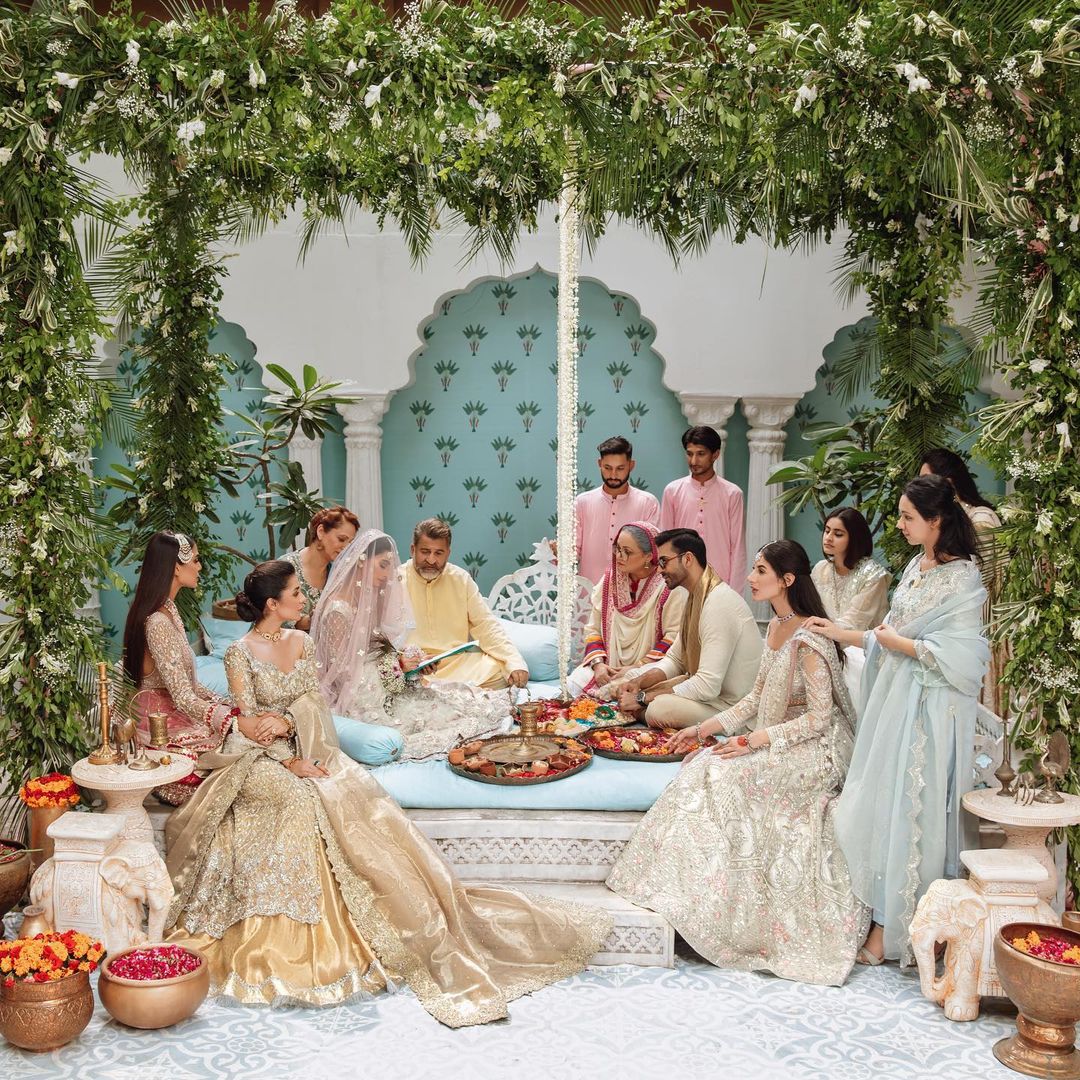
Source: Shayan Khan Sherwani
The couple exchange vows, where they promise to love, honor, and respect each other for the rest of their lives.
The Du'a
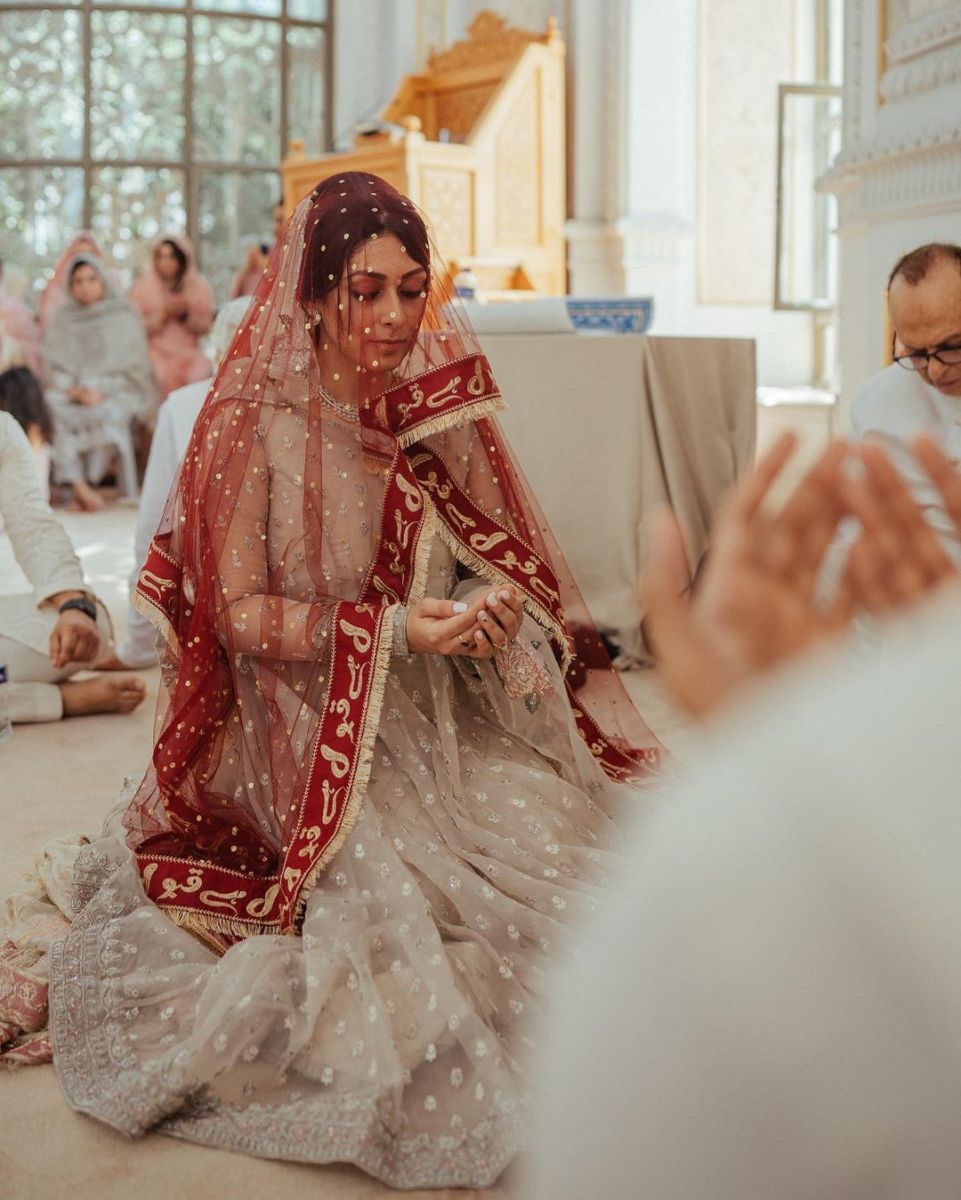
Source: Pictroizzah
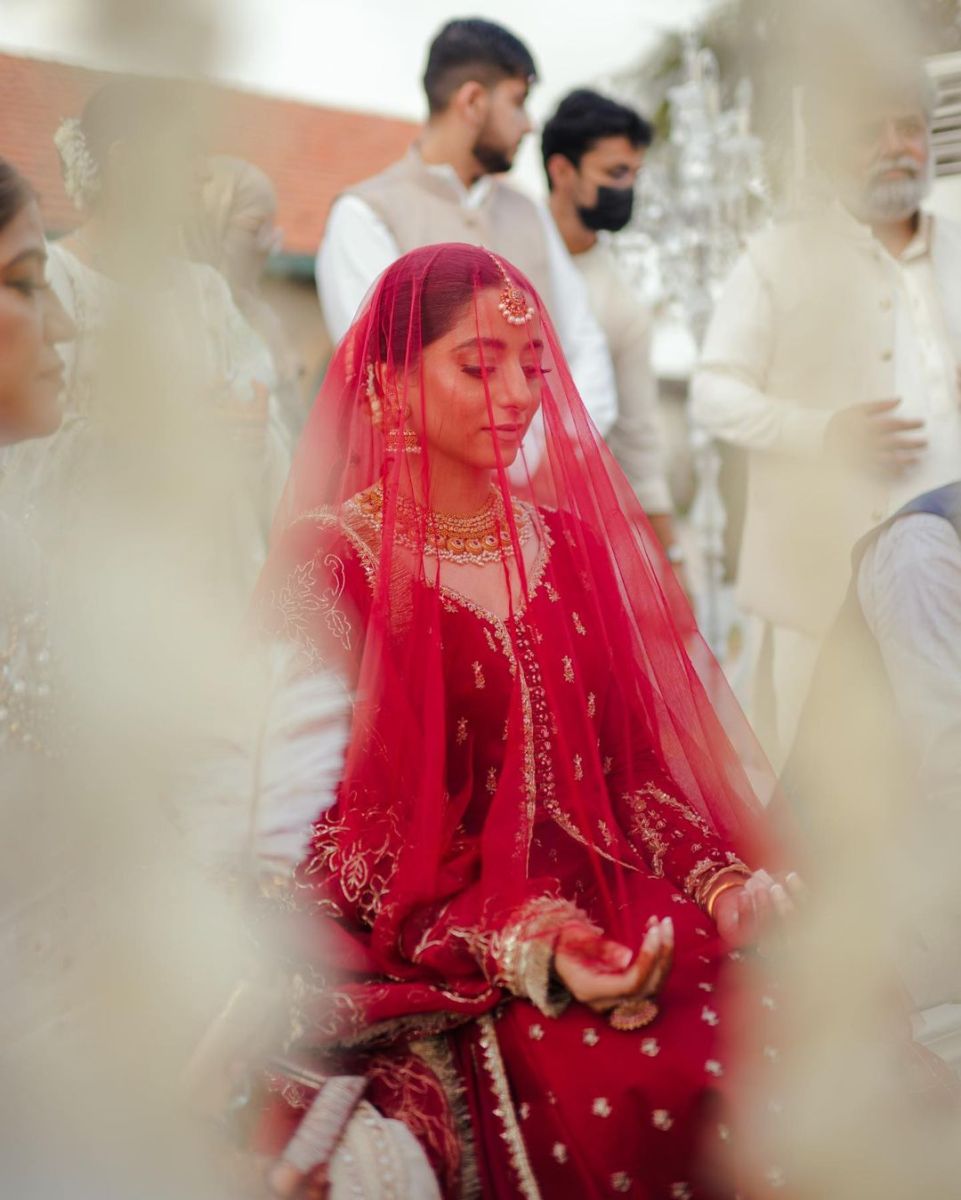
Source: Fatima Tariq Photography
This is a prayer that is said by the Imam or religious leader, asking Allah to bless the couple and their marriage.
Also Read: 30+ Pakistani Anarkali Outfit Ideas To Bookmark For Your Wedding
Post-Wedding Customs
After the wedding ceremony, several post-wedding customs are observed in Muslim culture. These customs are meant to celebrate the union of the couple and to bring their families and friends together. Some of the most common post-wedding customs include:
Walima
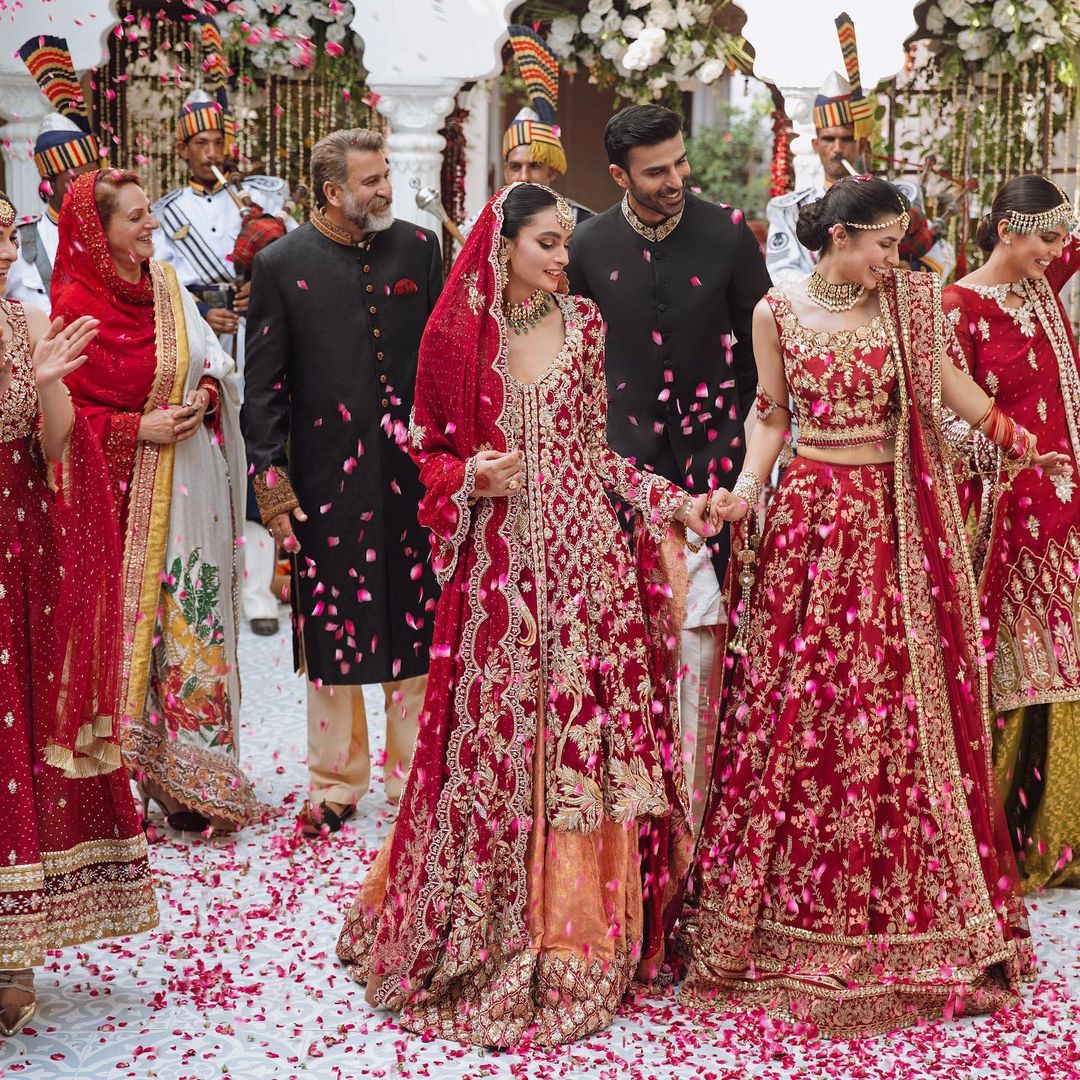
Source: Shayan Khan Sherwani
This is a reception that is hosted by the groom's family. It is a way for them to introduce the bride to their family and friends and to celebrate the union of the couple.
Chauthi
This is a post-wedding ritual that takes place four days after the wedding. It is a way for the bride to visit her parents and for her family to welcome her back home.
Rukhsati
This is a symbolic gesture where the bride leaves her home and moves in with her husband. It is a way to show that she is now a part of his family.
What are some of the most important things to keep in mind when planning a Muslim wedding?
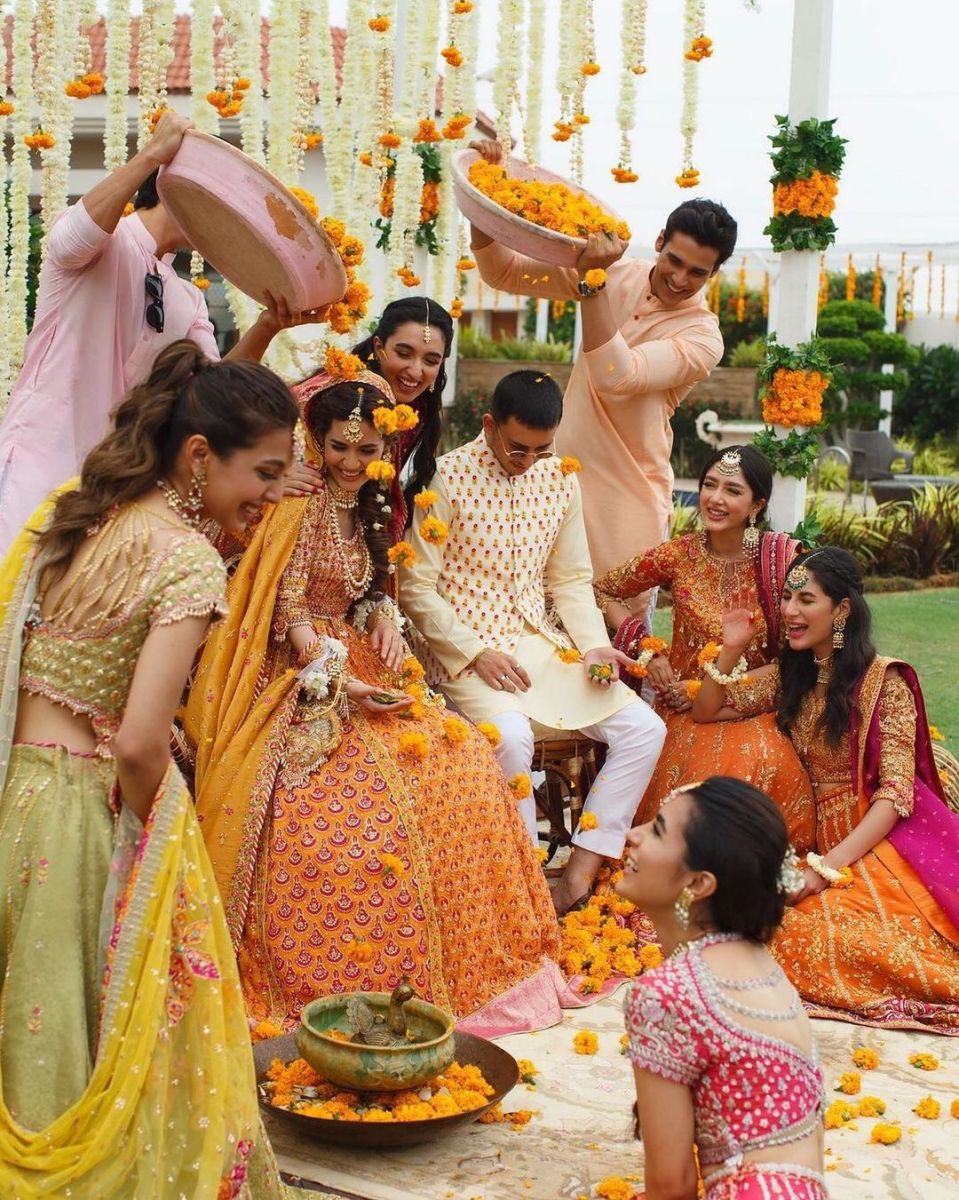
Source: Nadir Firoz Khan
When planning a Muslim wedding, there are several important things to keep in mind to ensure that the ceremony and celebrations go smoothly and respectfully. Here are some key considerations:
Get familiar with Islamic marriage laws
Before planning a Muslim wedding, it is essential to understand the Islamic marriage laws, including the requirements for the Nikah contract, Mehr, and other legal aspects of the marriage.
Choose an appropriate venue
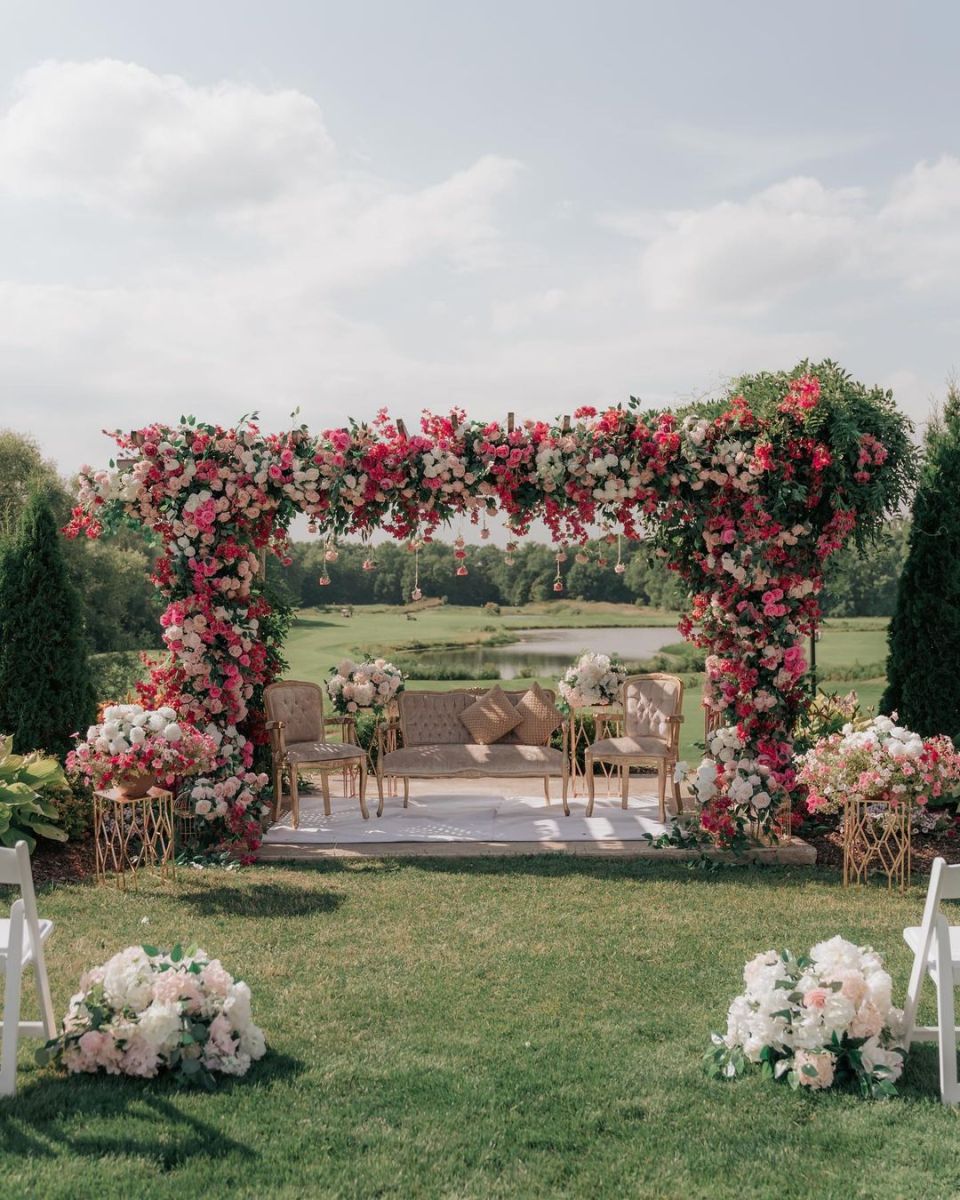
Source: Wajahat Syed
Muslim weddings can take place in a mosque, community center, or any other venue that is suitable for the ceremony. It is important to choose a venue that can accommodate the number of guests expected and provides the necessary arrangements for prayer and other religious customs.
Hire a skilled wedding planner
A professional wedding planner who is experienced in planning Muslim weddings can be a valuable resource for the couple and their families. They can guide the planning process, manage logistics, and ensure that all the necessary arrangements are made.
Respect Islamic customs and traditions
Muslim weddings are steeped in culture and tradition. It is important to respect and honor these customs throughout the planning process and during the ceremony and celebrations.
Ensure appropriate dress code
In Muslim weddings, it is common for the bride and groom to dress in traditional Islamic attire, such as hijab and sherwani. It is important to communicate the dress code to guests, particularly non-Muslim guests who may not be familiar with the customs.
Plan for separate seating arrangements
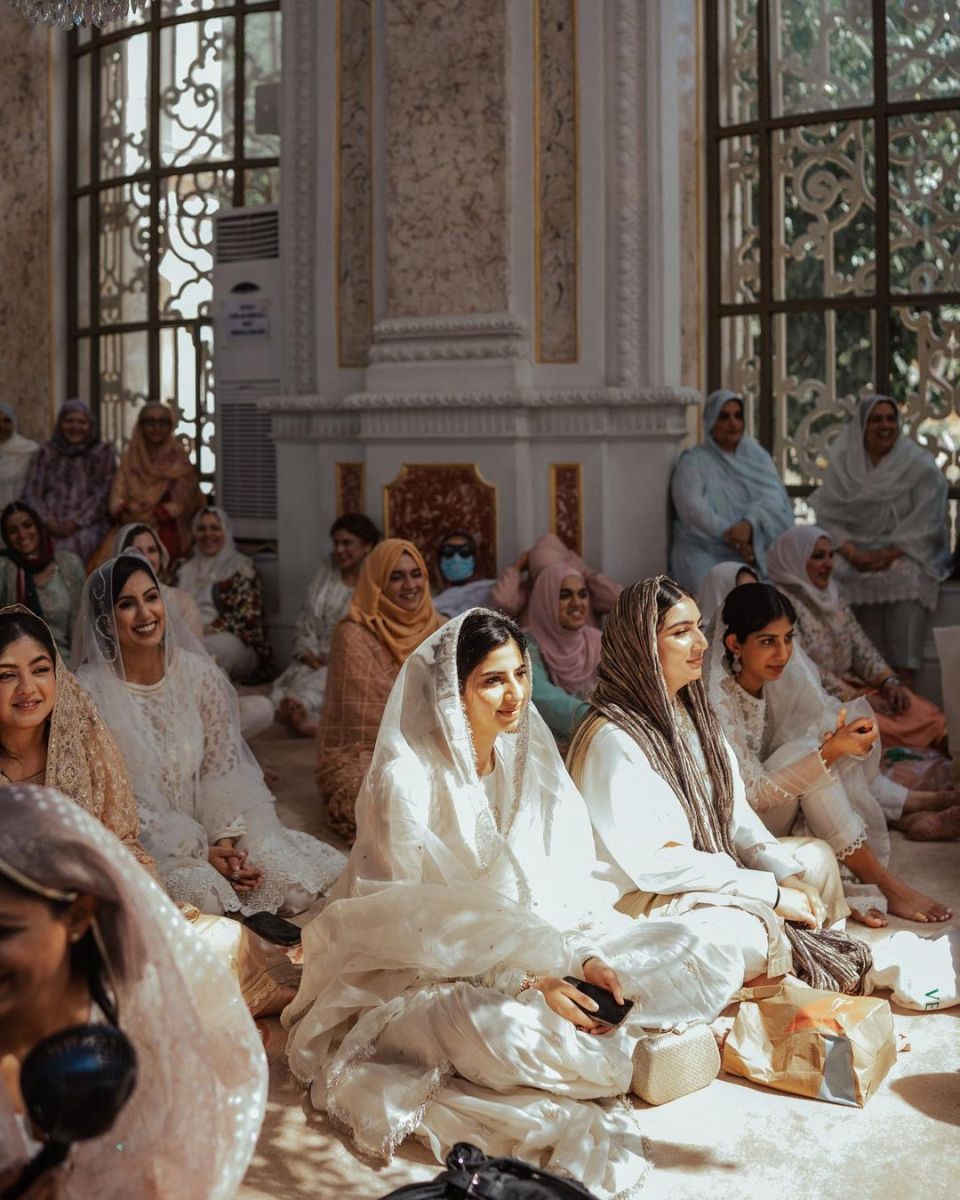
Source: Pictroizzah
In Muslim weddings, it is customary to have separate seating arrangements for men and women. This should be taken into account when choosing a venue and planning the seating arrangements.
Consider the needs of guests
Muslim weddings often involve prayer and other religious customs. It is important to consider the needs of guests, such as prayer facilities, Halal food options, and appropriate accommodations.
By keeping these considerations in mind, couples and their families can plan a beautiful and respectful Muslim wedding that honors their traditions and brings loved ones together to celebrate their union.
What are some of the traditional foods served at a Muslim wedding?
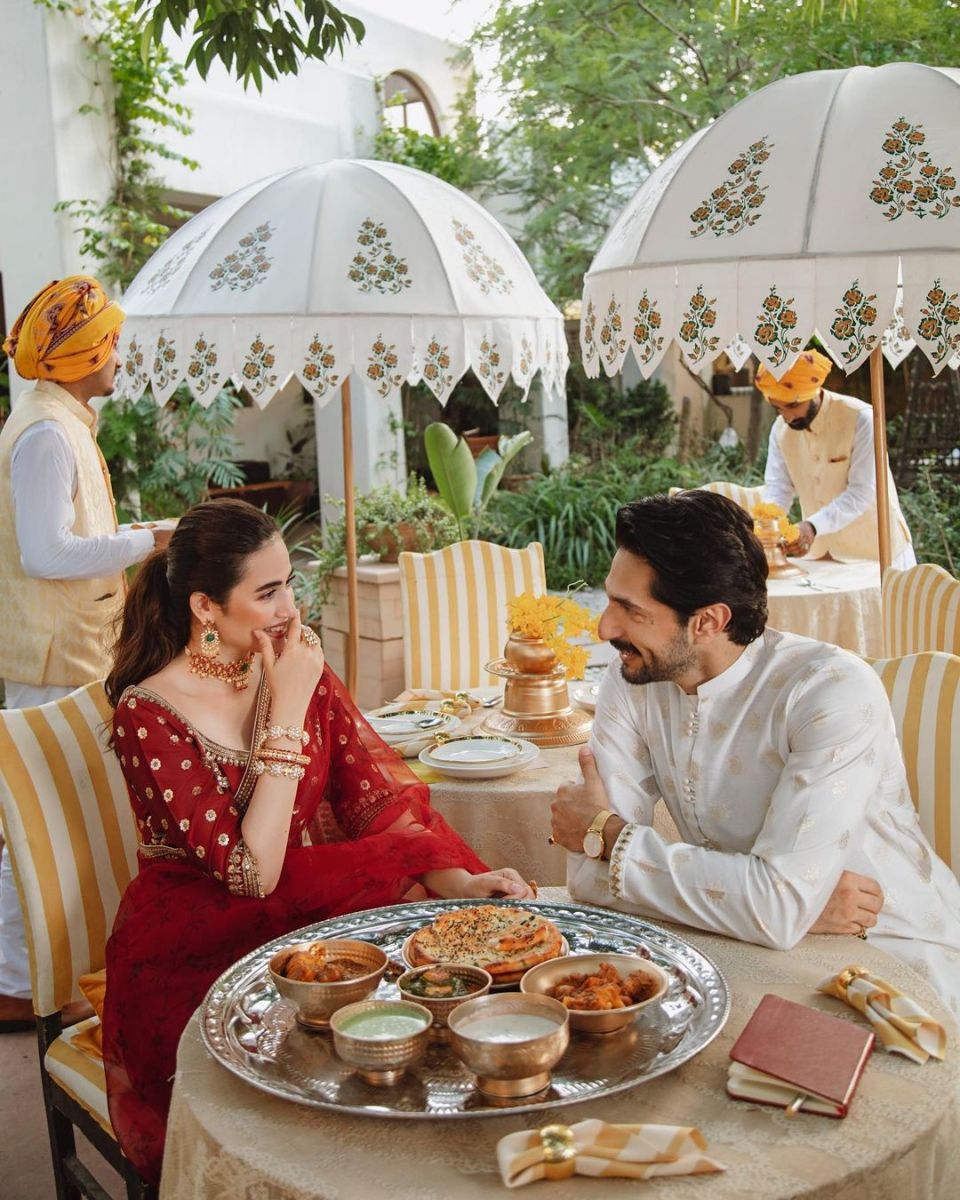
Source: Shayan Khan Sherwani
The traditional foods served at a Muslim wedding may vary based on the cultural and regional traditions of the bride and groom. However, some classic dishes are commonly served at Muslim weddings. Here are some of the traditional foods that guests may expect to see at a Muslim wedding:
Biryani: Biryani is a flavorful and aromatic rice dish that is popular in many Muslim cultures. It is made with long-grain rice, meat (usually chicken or lamb), and a variety of spices such as saffron, cumin, and cardamom.
Kebabs: Kebabs are a staple at Muslim weddings, and they come in many different forms. Some of the most popular varieties include seekh kebabs (spicy ground meat skewers) and shami kebabs (flattened patties made from ground meat).
Haleem: Haleem is a slow-cooked stew made with meat (usually beef or lamb), lentils, and wheat. It is a hearty and satisfying dish that is often served as a main course at Muslim weddings.
Samosas: Samosas are a popular appetizer at Muslim weddings. These savory pastries are filled with spiced meat or vegetables and deep-fried until crispy.
Naan: Naan is a type of flatbread that is commonly served with meals at Muslim weddings. It is soft and fluffy, with a slightly chewy texture, and is perfect for soaking up sauces and curries.
Kheer: Kheer is a sweet rice pudding that is often served as a dessert at Muslim weddings. It is made with milk, rice, sugar, and cardamom, and is often garnished with nuts and dried fruits.
Gulab jamun: Gulab jamun is a popular dessert in many Muslim cultures. These small, round balls are made from milk solids that have been fried and soaked in a sweet syrup flavored with cardamom and saffron.
In addition to these classic dishes, many Muslim couples may also choose to serve a variety of other dishes that reflect their personal tastes and cultural traditions. Overall, Muslim weddings are known for their delicious and flavorful food, and guests are sure to enjoy the many different dishes that are served.
Conclusion
In conclusion, a Muslim wedding is a beautiful and sacred event that is steeped in tradition and culture. From the pre-wedding rituals to the wedding ceremony itself and the post-wedding customs, every aspect of a Muslim wedding is rich in symbolism and meaning. It is a time when two individuals come together to form a lifelong partnership based on love, respect, and mutual understanding.

